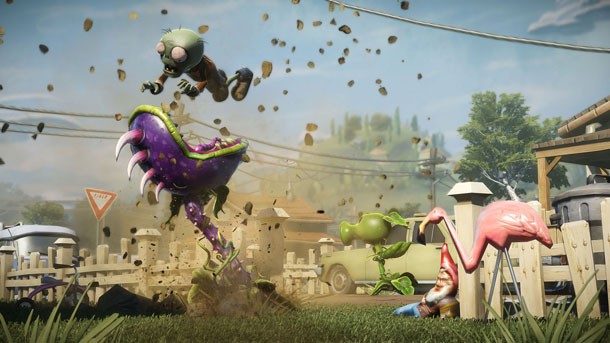Please support Game Informer. Print magazine subscriptions are less than $2 per issue
Opinion – If It Ain't Broke

The video game industry is changing, and like most industries, it generally favors the companies that are willing to change along with it. New platforms and audiences have required game makers to seek out alternative methods for turning a profit, some of which have bled over into the mainstream market. I'm fine with game companies exploring new ways to make money, but not when it makes a perfectly good game less fun to play.
In late January, EA released Dungeon Keeper, a mobile reboot of Bullfrog's beloved strategy series. The new free-to-play title raised more than a few red flags with consumers, and was subsequently ravaged by critics and gamers alike. What's especially disappointing is that Dungeon Keeper is a proven series – EA already had a blueprint of what people like about Bullfrog's original formula. Based on the brand name, the publisher likely could have charged more than the average 99-cent asking price of mobile games and fans would have gladly paid up. Instead, Dungeon Keeper's new gameplay is bogged down by time gates and microtransactions. Even in a world where user reviews are frequently abused to "send a message" to publishers, Dungeon Keeper's Metacritic user score is shockingly bad; with a whopping 499 users weighing in, the game currently only has a 0.3 rating.
In a way, I can understand EA's goal and subsequent missteps; the company tried to make Dungeon Keeper a free-to-play game, and failed horribly. Hopefully, EA learns the lesson and moves on (based on its response to the criticism, though, I'm not holding my breath). However, Plants vs. Zombies: Garden Warfare is a stranger and more troubling example.
I enjoyed aspects of Garden Warfare. I applaud PopCap and EA for deciding to make a light-hearted shooter that emphasizes humor over bloodshed. It also cleverly incorporates some of the tower-defense elements from the series with the ability to summon zombies and plants on the battlefield. Despite a dearth of interesting modes and maps, there are plenty of characters, upgrades, and customization items to unlock. However, PopCap eschewed the traditional progression formula that works so well in every other shooter for a pseudo-free-to-play scheme that drags down the experience. The majority of the unlockables – as well as the aforementioned tower-defense items – can only be acquired by purchasing random card packs with in-game currency doled out at a sluggish pace. It's the classic free-to-play formula that most gamers are familiar with by now, despite the up-front price tag.
What's even more disturbing is that the paywall in Garden Warfare doesn't actually exist. You can't buy the in-game PvZ Coins with real money; you can only earn them from playing the game. EA says it might patch in the ability to buy currency in the future, which has led conspiracy theorists to speculate that the publisher temporarily excluded the option to improve review scores. I don't know why; the free-to-play formula has made the game less enjoyable whether you can buy virtual currency or not. Like Dungeon Keeper, Garden Warfare's underlying foundation was already fun, but PopCap and EA's attempt to fix a nonexistent problem only made matters worse.
Some companies argue that game development is in fact broken – games cost too much money to make, and can't be sustained by the traditional pricing model unless they're a massive success. That problem is very real, and publishers and developers struggle with it every day. However, making a game less fun isn't going to make it more successful. In their zeal to discover a solution, some game makers forget an obvious lesson: We play games to be entertained. When I'm playing a game, I don't want to be continually weighing purchasing decisions; once I'm past the start screen, I just want to play. Thanks to streaming services like Netflix and HBO Go, I've managed to minimize the commercial interruptions I have to endure when I'm watching my favorite television series – I don't want them added to my gaming sessions.
Luckily, game makers are finding more appealing solutions. Some turn to Kickstarter to attain funding before diving into a project. Others have increased their bottom line by creating quality DLC that enhances and extends the life of a game after its release, instead of cutting out content from the main game or offering players overpriced horse armor, like early forays into download content. Gamers should consider that before they spam forums and comment sections with negative comments whenever DLC for a game is announced; not only will the Left Behind DLC for The Last of Us help fund Naughty Dog's next project, it's also giving players another great chapter from one of 2013's best games. That's a win-win scenario if there ever was one.
At the same time, game makers should ask themselves a few questions before pursuing alternate monetization schemes: Does the tried-and-true consumer model really pose a problem for their project? And if so, is their proposed solution really going fix it, or make it worse?










